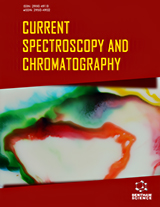Abstract
Background: In this work, the chemical polymerization of P-NPhPy on the polyester fibers in the mixed solution of sodium dodecyl benzene sulphonate (SDBS) with FeCl3 by chemical method is reported. A new SPME syringe suitable for fabricated fiber is designed and used to extract some VOCs from water samples and analysis by GC-FID. In fact the purpose of this paper was the presentation of a new chemically synthesized fiber and a new syringe. Results show that designed syringe and chemically synthesized new fibers have the capability of coupling by GC-FID and trace analysis of water pollutants.
Methods: The P-NPhPy fiber was employed for analyzing four VOCs (Acetaldehyde, Benzene, Benzaldehyde, p-Xylene) in water by headspace SPME using gas chromatography- flame ionization detection (GC-FID).
Results: Poly N-phenyl pyrrole (P-NPhPy) was chemically-deposited on the polyester fiber's surface in the mixed electrolytes of sodium dodecyl benzene sulphonate (SDBS) with FeCl3 by chemical method. The Transform Infrared spectroscopy (FT-IR) and Scanning Electron Microscopy (SEM) techniques are used for analysis of morphology and the compositions of synthesized P-NPhPy. The SEM results show that the morphology of P-NPhPy is nanosized and cabbage shape. Poly N-phenyl pyrrole Coated Polyester applied as a fiber for solid phase microextraction (SPME).
Conclusion: Results showed that P-NPhPy synthesized fiber can suitably use for the extraction and analysis of analytes. The effects of the extraction parameters including fiber length, exposure time and sampling temperature on the extraction efficiency were optimized by experimental design method. Relative standard deviations (RSDs) were determined ≤ 5%. Detection limits were between 60 and 80 µg. L-1.
Keywords: N-phenyl pyrrole, solid phase microextraction fiber, nanostructure, volatile compound.
Graphical Abstract































